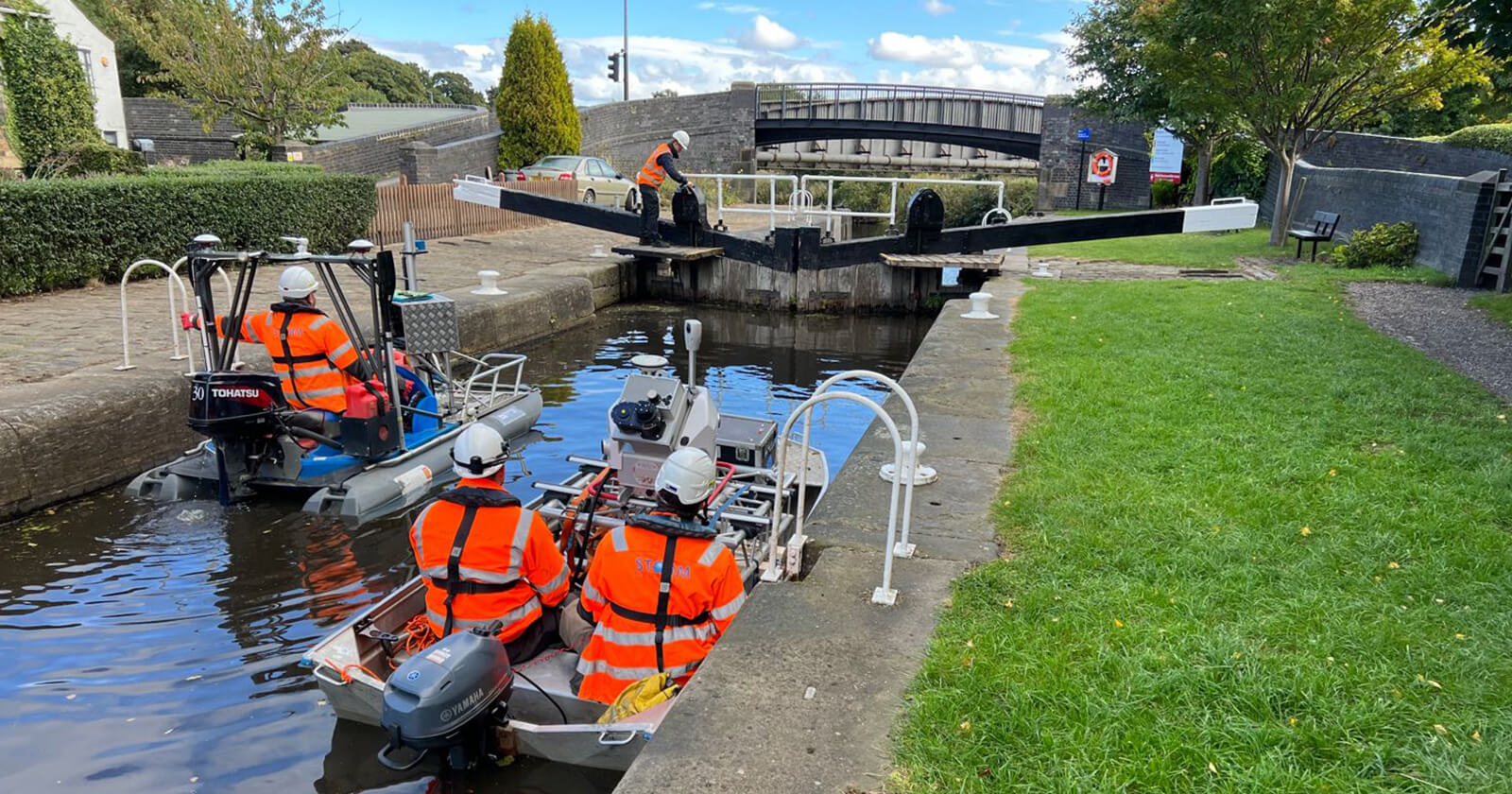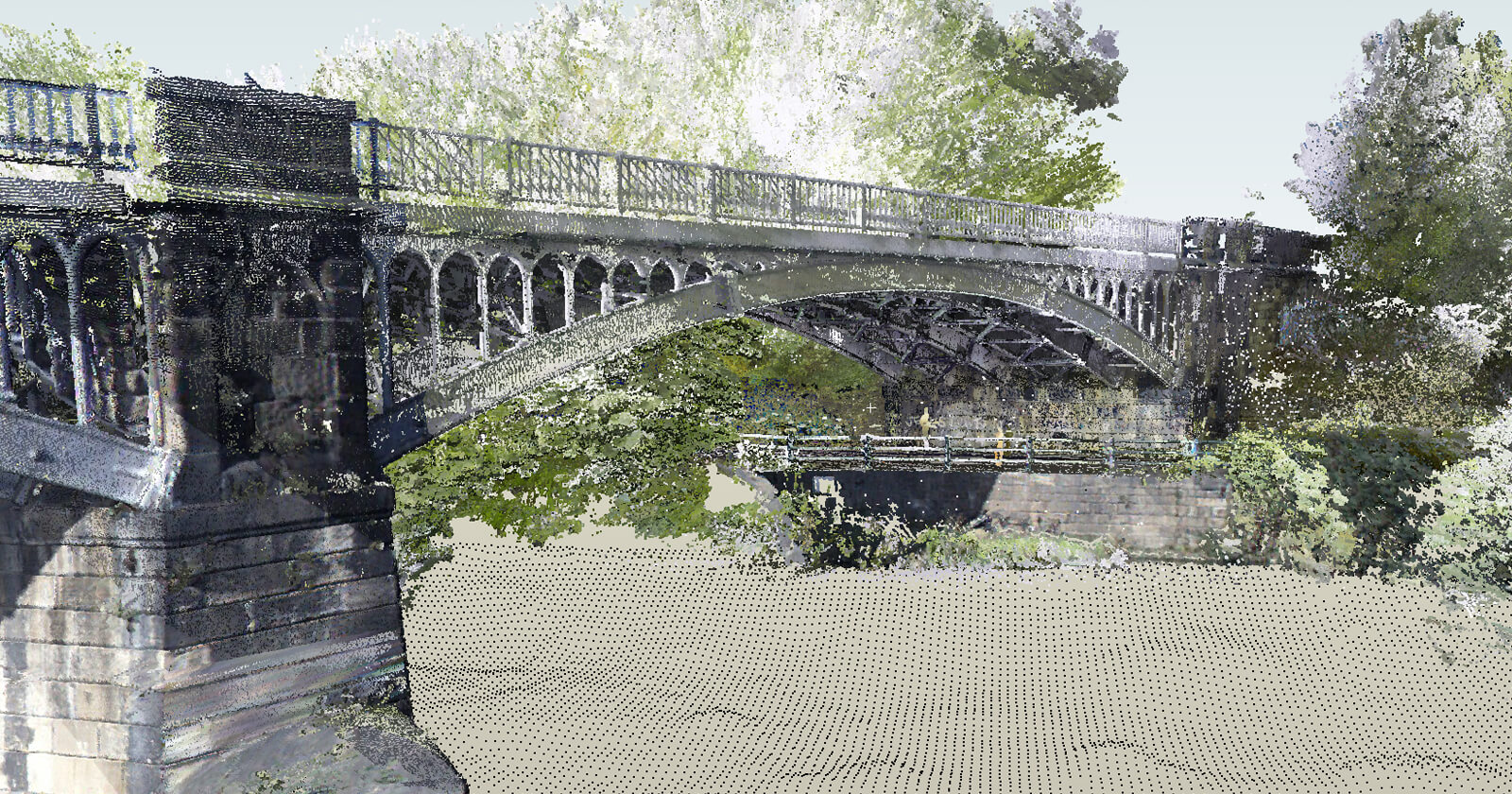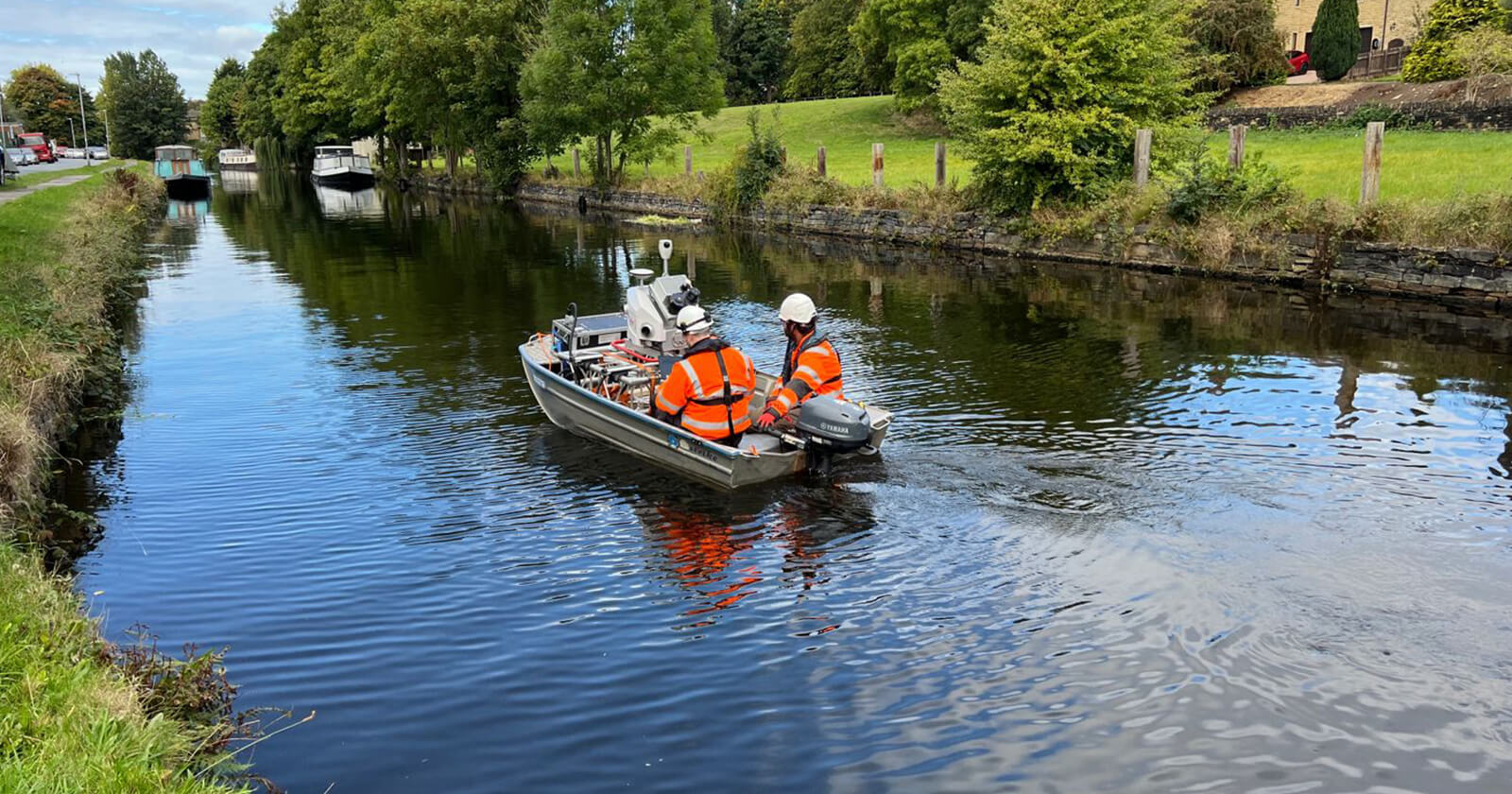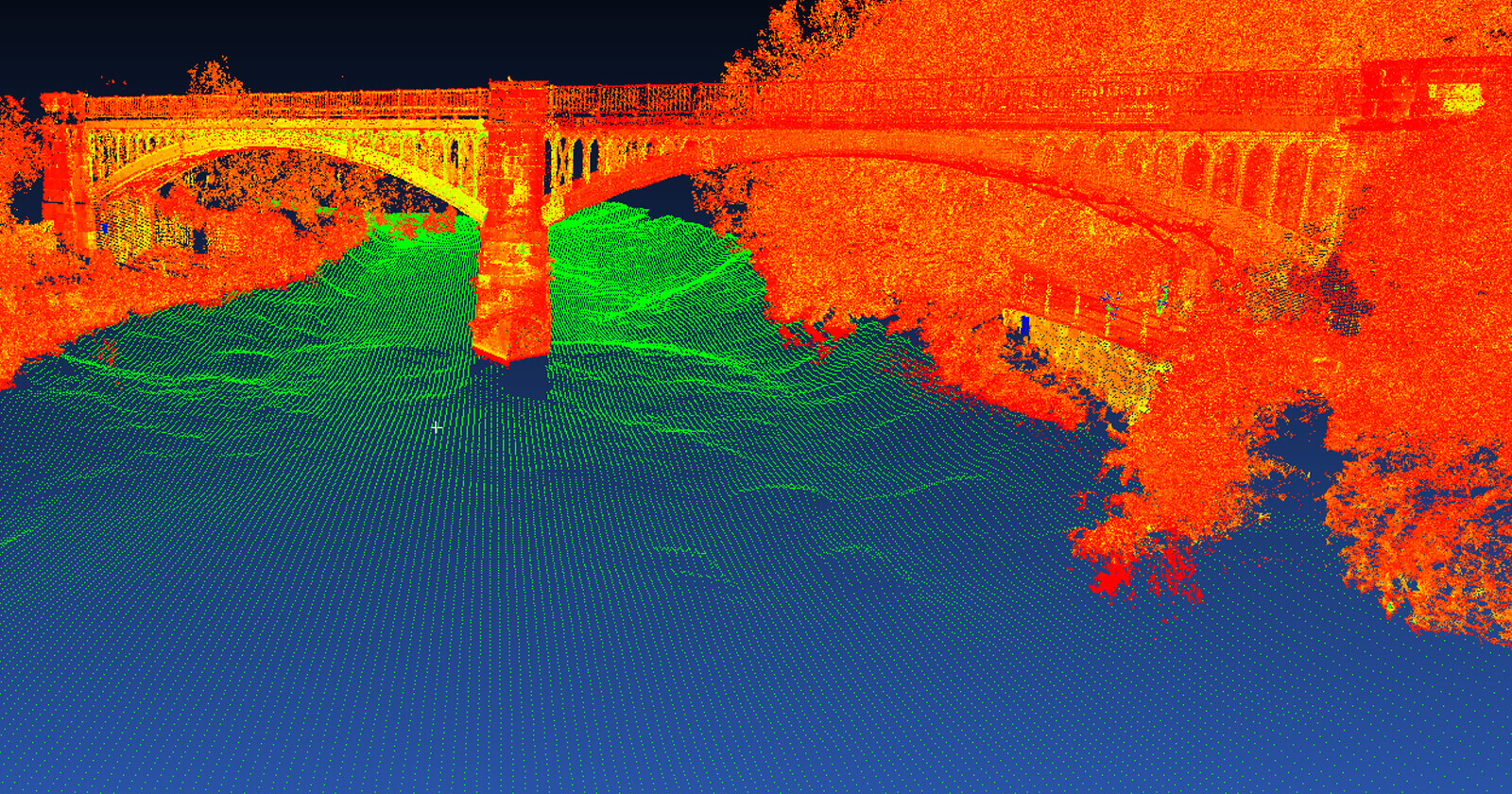Transpennine Route Upgrade
Using the Leica Pegasus:Two mobile mapping solution to scan the existing infrastructure for the The Transpennine Route Upgrade (TRU).

Author: Simon Hall
Electrifying on old infrastructure
The Transpennine Route Upgrade (TRU) is a major investment being made in the railway between York and Manchester via Leeds and Huddersfield, the 76 miles (122 km) northern route over the Pennines. The Integrated Rail Plan for the North and Midlands, announced in November 2021, included full electrification between Manchester and York.
As part of the project, new survey information of the existing viaducts and surrounding areas was required, which would allow the designers to continue with the new development. The end goal of the surveying works was to extract accurate topographical information.
It’s Victorian infrastructure, poor access roads and difficult terrain, including the 3-mile Standedge Tunnel, means improvements have been very challenging. There are several bridges and viaducts being upgraded, strengthened or otherwise modified as part of the project. Part of the upgrade process was to survey these viaducts to create 3D BIM models. Originally these viaducts were static scanned from the riverbanks, however this didn’t acquire sufficient information for the designers to complete their work.
Solutions - Accurate topographic information
The team from Storm and Severn Partnership mounting the Leica Pegasus:Two to their watercraft.
In 2022, Severn Partnership were contracted to survey 3 of these viaducts. Severn Partnership are rail survey specialists, and are a trusted for survey requirements for Rail engineering projects. They have a proven record of delivering thousands of miles of track survey and hundreds of bridges, tunnels, embankments & stations since 1994.
Since their formation in 2006, Storm Geomatics have made surveying in water their domain, providing high quality data to engineers to create accurate flood risk models. Storm provides an unrivalled solution for inland water-based survey through surveying expertise and innovation of survey systems, therefore adding value to clients projects with high integrity data which goes on to inform environmental and engineering solutions. With an excellent safety record and a proven history of delivering base data into hydraulic studies, their clients have benefited and enjoyed using clean and reliable data to make successful recommendations from their models.
This collaborative effort from both Severn and Storm meant that by combing their two sets of expertise, they assembled a team to conduct the surveying works quickly, efficiently and safely.
Severn Partnership were the first company in Europe to invest in the Leica Pegasus:Two, offering survey grade mobile mapping of bridge structures. The Leica Pegasus:Two enhances traditional projects and creates new business opportunities for surveying companies such as Storm and Severn Partnership. As the vehicle and application independent solution, the Pegasus:Two was perfectly suited to the water based surveying works required. It captured calibrated imagery and point cloud data in one pass, and combined with the Leica Pegasus:Manager Suite, it also provided post-processing, saving time with the integrated work flow with CAD development software. The team from Storm Geomatics mounted the Pegasus:Two onto their watercraft, allowing them to conduct the scans in much closer proximity to the structures than they would have managed from the riverbanks. The 8 FPS Cameras of the Pegasus:Two captured data equal to 256 megapixels per second.
Captured scan data
“This data was surveyed to enable the design of the new viaduct re-routing the existing tracks over the river Calder at Ravensthorpe. Specifically needed to confirm the sheet piling design which will be used to enable the construction of a temporary area to pile the piers for the viaduct. There are four piers located in the river and two extensive sections of sheet piling.”
Alliance Survey Manager - TRU West
Leica Pegasus:Manager is the Reality Capture software client for mobile mapping, a single desktop application for processing, analysing, and extracting features from point clouds and images acquired by the Leica Pegasus Mobile Mapping systems. The Mission Planning module of Leica Pegasus:Manager supported Storm and Severn in the preparation of the surveys by calculating the best time to collect data based on several key factors. As an output, the Mission Planning module provided an estimation of the surveying accuracy. The Processing module inside Leica Pegasus:Manager combined data acquired by the IMU, GNSS, cameras, and laser scanner to create an integrated solution. The integrated GNSS and IMU trajectory calculation, automatically optimised the processing parameters to obtain the highest quality of trajectory – without manual interaction. The resulting 3D dataset was composed of a calibrated and georeferenced combination of points and images. All data could then be visualised within the free viewer or simply exported into most common file formats.
This revolutionary technology can also be leveraged in combination with Multi-Beam Sonar to scan the underside and abutments of bridge structures.
A view to the future
“The Pegasus is perfect for this situation, being able to capture mass amount of data in one day in a tricky environment that you typically couldn’t survey with traditional equipment.”
Luke Blakemore | Project Manager - The Severn Partnership Ltd
Being able to capture large scale road networks in a single day, opposed to traditional methods that would take weeks to months, provided Severn and Storm with a great saving on cost, increased efficiency and improved health and safety. Being able to bring the surveyors back to the office to process the data, rather than being in a high-risk environment, was a huge advantage.
Looking towards the future, Severn Partnership have a variety of unique projects where they have utilised the Pegasus:Two system, from boats, to quadbikes, and even on cranes. Their hope is to continue this work and find new solutions for all environments, not only using the Pegasus:Two as a Survey tool, but to expand into the visual and simulation sector.




























